Working with Deities: Introduction to Pagan Pantheons
Paganism, a diverse and nature-centric spiritual path, has been around forever, but is gaining popularity again. At its heart are pantheons, collections of gods and goddesses with unique characteristics and realms of influence. The fascinating thing about pagan pantheons is that you don’t have to pledge allegiance to just one; you can explore and connect with multiple, if that resonates with you.
Each pantheon carries a distinct energy, offering a unique spiritual experience. As we delve into each pantheon, you’ll discover the vibes that resonate most with you.
The Greek Pantheon
The Greek pantheon, a treasure trove of gods and goddesses, is known for its mythology and multifaceted deities. Common practices and rituals associated with Greek deities often involve offerings and libations, honoring their grandeur. If you’re venturing into Greek waters, remember to embrace the wisdom of the oracles and seek guidance from these divine beings.
Zeus (King of the Gods)
Zeus is the king of the gods and ruler of Mount Olympus. He is associated with thunder, lightning, and the sky. Zeus is known for his leadership and authority over both gods and mortals.
Hera (Goddess of Marriage and Family)
Hera is the queen of the gods and the goddess of marriage and family. She is often depicted as a protector of married women and a symbol of fidelity.
Athena (Goddess of Wisdom and War)
Athena is the goddess of wisdom, strategy, and warfare. She is known for her intelligence and is often associated with learning and the arts.
Others in the Greek pantheon include:
- Aphrodite (Goddess of Love and Beauty)
- Dionysus (God of Wine and Revelry)
- Apollo (God of Poetry and Prophecy)
- Artemis (Goddess of the Hunt)
- Demeter (Goddess of the Grain)

The Greek pantheon, with its captivating stories and multifaceted deities, beckons to those who seek a balance between the earthly and divine.
The Norse Pantheon
The Norse pantheon, with its fierce gods and rich warrior culture, beckons those who seek strength and resilience. Norse practices often involve offerings, feasting, and rune magic. If you’re drawn to their mighty presence, prepare to embrace their warrior spirit and courage in your craft.
Odin (Allfather and God of Wisdom)
Odin is the Allfather and chief of the Aesir gods. He is associated with wisdom, knowledge, poetry, and war. Odin sacrificed an eye at Mímir’s well to gain greater wisdom.
Freya (Goddess of Love and Fertility)
Freya is a goddess of love, beauty, fertility, and war. She possesses a magical necklace called Brísingamen and is associated with cats and falcons.
Hel (Goddess of the Dead)
Hel is the goddess of the underworld and the ruler of the realm of the dead. She is often depicted as half-living and half-dead.
Others in the Norse pantheon include:
- Thor (God of Thunder and Strength)
- Loki (Trickster God)
- Freyr (God of Peace and Prosperity)
- Bladr (God of Light)
- Skadi (Goddess of the Wilderness)

The Norse gods and goddesses resonate with those who yearn for strength and resilience in their spiritual journey.
The Egyptian Pantheon
The Egyptian pantheon, shrouded in mysticism, offers a deep connection with the afterlife and cycles of rebirth. Practices may include working with sacred symbols and meditation to connect with these timeless deities. If life and death intrigue you, the Egyptian pantheon is a remarkable choice.
Isis (Goddess of Healing and Magic)
Isis is a goddess of magic, motherhood, and healing. She is known for her nurturing and protective qualities and is often depicted with a throne-shaped headdress.
Ra (Sun God and Creator)
Ra is the sun god and creator deity, associated with the sun’s life-giving and warming qualities. He is often depicted with a sun disk on his head and a serpent encircling it.
Hathor (Goddess of Music and Dance)
Hathor is a goddess of love, music, dance, and motherhood. She is often depicted as a cow or with cow-like attributes, symbolizing fertility.
Others in the Egyptian pantheon include:
- Thoth (God of Wisdom and Writing)
- Sekhmet (Goddess of Healing and Destruction)
- Anubis (God of the Dead and Embalming)
- Bastet (Goddess of Cats)
- Osiris (God of the Afterlife)

The Egyptian pantheon is entwined with concepts of life after death and rebirth, making it a compelling choice if you’re drawn to the cycles of life.
The Celtic Pantheon
The Celtic pantheon is deeply intertwined with the natural world. Celtic practices often involve rituals tied to the seasons and elements, connecting you intimately with the earth. If you find solace and strength in the embrace of nature, the Celtic pantheon welcomes you with open arms.
The Morrigan (Goddess of War and Fate)
The Morrigan is a powerful and complex goddess associated with war, fate, and transformation. She embodies both the destructive and protective aspects of battle and is often seen as a shape-shifter.
Brigid (Goddess of Hearth and Forge)
Brigid is a goddess of fire, hearth, and the forge. She is associated with creativity, poetry, and healing. Brigid is also revered as a protector of livestock and agriculture.
Danu (Mother Goddess of the Tuatha Dé Danann)
Danu is the mother goddess of the Tuatha Dé Danann, an ancient Celtic tribe of deities. She represents the earth, fertility, and the nurturing aspects of the land.
Others in the Celtic pantheon include:
- Cernunnos (God of the Wild and Fertility)
- Lugh (God of Skills and Crafts)
- Manannán mac Lir (Sea God of the Tuatha Dé Danann)
- Dagda (God of Life and Death)
- Arianrhod (Lunar Goddess of Cycles)

The Celtic pantheon is deeply rooted in nature, making it an excellent choice for those who find solace in the natural world.
In your journey through these pantheons, remember that intuition is your compass. Let your heart guide you as you form relationships with these deities. Remember, it’s okay to be drawn to more than one! Eclectic witches weave the threads of different pantheons into their practice to create a unique tapestry of spirituality.
Working with pantheons opens the door to a world of ancient wisdom and divine energies. Whether you’re drawn to the Greek, Norse, Egyptian, or Celtic path, the key is to explore, learn, and respect the energies that resonate with you and your craft.







